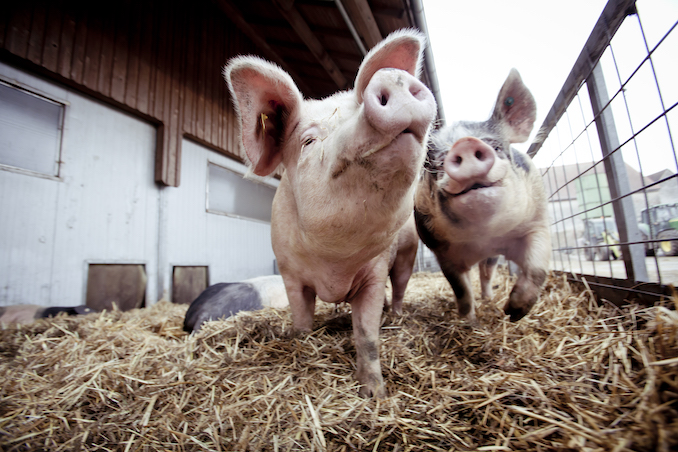Too little feed for organic pig farming

Tomorrow the special conference of agricultural ministers will take place in Berlin with a focus on "conversion of livestock farming". The federal program for the conversion of animal husbandry is intended to promote investments in species-appropriate barn systems and a large part of the ongoing additional costs compared to the legal standard in the area of pig husbandry. Bioland takes a critical view of the current plans and calls for improvements in the implementation measures. A comment from Gerald Wehde, Head of Agricultural Policy at Bioland:
“The development of organic animal husbandry is a central point of the federal government’s 30 percent organic land target. The planned labeling law, with organic as a separate husbandry level, already sets an important framework for this. The federal program to reorganize animal husbandry is another important building block. In its current draft version, however, it robs organic farmers of any motivation. For dynamic development in the field of organic pig farmers, the ministry led by Cem Özdemir must make the federal program fairer and more targeted. The funding system for the guidelines on the ongoing additional costs of the types of housing to be funded “fresh air stable”, “outdoor/pasture” and “organic” must be adapted. Because with the planned uniform cap amount across all husbandry levels, organic farms will be severely disadvantaged. Anyone who promises to subsidize 70 or 80 percent of the additional costs must also fulfill this for organic pig farming. Bioland is therefore calling for the much too low cap amount for organic farms to be abolished. In addition, a technically comprehensive calculation of the additional costs for organic farms must be used as a basis that reflects reality. In particular, the feed costs and the increased labor costs must also be taken into account. These are among the largest cost pools for organic farms. The high quality of the organic feed is an elementary part of the "organic" form of husbandry according to the EU organic regulation, in contrast to a pure animal welfare classification. Such an approach would therefore only be logical. Otherwise, organic farms will be left with their increased costs and the transformation of livestock farming will lose its greatest potential. If you want 30 percent organic area by 2030, you have to organize the funding in such a way that organic pig farming does not stagnate at one percent.”
Background to support ongoing additional costs
When it comes to supporting the ongoing additional costs, the agricultural department is planning a differentiated approach depending on the number of animals. Animal premiums should cover 80 percent of the additional costs compared to the legal minimum standard if the number of fattening pigs or piglets sold annually does not exceed 1.500. The subsidy rate drops to 70 percent for a quantity of up to 6.000 fattening pigs or piglets. For sows, the corresponding subsidy limits should be between 50 and 200 animals/year.
External experts calculate the ongoing additional costs for the three eligible husbandry methods. The funding guideline provides for a cap that puts organic pig farmers at a clear disadvantage compared to pig farmers with other forms of husbandry. The allowance per animal and year should not exceed 750 euros, multiplied by a factor of 0,05 for fattening pigs, 0,03 for piglets and 0,5 for sows. A maximum allowance of 37,5 euros would result for a fattening pig. Thus, with a subsidy rate of 80 percent, the ongoing additional costs would be capped at just under 47 euros. This amount in no way covers the additional costs of organic pig fattening. For pigs from a "fresh air barn", the additional costs are covered at the highest subsidy rate of 70 or 80 percent with less animal welfare, for organic pigs only around 30 percent. This does not provide any incentive for switching to organic pig farming and a high level of animal welfare. Bioland is therefore calling for the cap on organic pig farming to be removed from the guideline without replacement.
